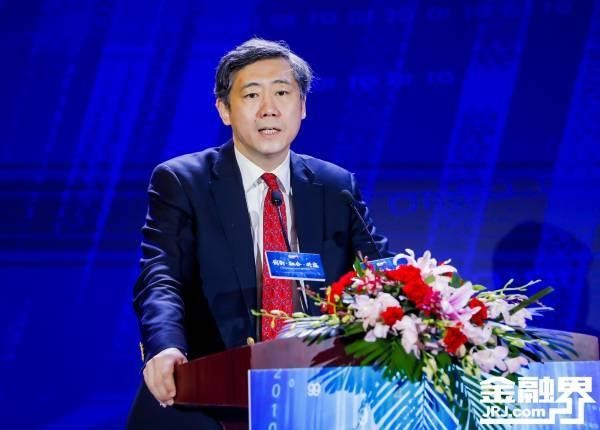Li Daokui: The key to the beginning of the 14th Five-Year Plan period is to create three new economic growth points
Originally published by JRJ.com on December 10, 2020, translated by ACCEPT
Author: Zhao Lu
In 2020, the sudden onset of the pandemic disrupted people's normal lives, drastically changed the global economy, caused a sharp rise in uncertainty, and presented huge challenges to China's financial industry. At the same time, this year also witnessed the emergence of bank wealth management subsidiaries, the peak of fintech empowerment, full force wealth management transformation, and an unprecedented windfall for the fund industry. On December 10th, hundreds of financial industry experts gathered in Beijing to discuss the digital transformation and development of the financial industry, the application of financial technologies in the field of wealth management, the great era of public funds, the future of pension finance, and more at JRJ.com’s Fifth International Forum on Intelligent Finance and 2020 Financial Leadership Annual Gala.

At the forum, Li Daokui, member of the National Committee of the Chinese People's Political Consultative Conference (CPPCC) and director of Tsinghua University’s Academic Center for Chinese Economic Practice and Thinking (ACCEPT), delivered a speech entitled “Some Important Factors for a Smooth Start to the 14th Five-Year Plan.” In his view, the 14th Five-Year Plan is different from previous five-year plans in that it faces a complex external environment, which has attracted more attention from the outside world. This is the most important piece of context to keep in mind as the 14th Five-Year Plan launches.
According to Professor Li, against this backdrop, there are three key factors to monitor and opportunities to seize.
First, to reasonably handle the transition period with the new U.S. administration. Dr. Li hopes that within the next 5-10 years, China and the U.S. can find ways to create a new pattern of Sino-U.S. relations and form a competitive partnership based on cooperation.
How can this be accomplished? In Li Daokui's view, Biden's team is at a high academic, diplomatic, and policy level, and China must maintain close and frank communication with them. “The start of Sino-U.S. relations under the new administration will require patience, patience, and more patience. We must also recognize that great differences exist domestically in the U.S., and we should not respond rashly,” said Professor Li. “Americans and the U.S. media see that China is now very patient, which is very good.”
Second, to create new growth points for the Chinese economy. Li Daokui said there are three new growth points to focus on: 1) correcting concepts of urbanization; 2) properly regulating science and technology platforms, which also involves improving the government-market relationship; and 3) unifying the large market, which is also contingent upon the government-market relationship.
Regarding urbanization, Li Daokui suggested that through urbanization, the income of 1 billion people who have not yet moved into the middle-income level can be raised. “Consumption cannot rise until income rises, and we cannot form a large domestic cycle until consumption rises,” he said.
In Li Daokui's view, there is currently a big misconception in urbanization: that the economic dominance of China’s northern cities have all collapsed. He said that China’s population distribution has adjusted along the lines of economic development and technological progress, and urbanization should be centered on the happiness of the people. Policies should be consistent with this happiness rather than pursuing the same economic scale in each region.
Regarding the regulation of science and technology platforms, Professor Li said that the growth point of this round of the science and technology revolution has been led by innovation platforms. He suggested that the focus should be to ensure that innovation platforms do not hinder technological innovation.
On the topic of the need for a large unified market, Li Daokui pointed to environmental constraints as a factor. “Beijing can pay for Hebei to reduce carbon emissions and pollution, thus reaching the goal of carbon reduction and air improvement in Beijing, Tianjin, and Hebei,” Dr. Li said.
Third, risk control. Li Daokui believes that there are two keys to the financial aspects of risk. First, to improve the quality of loans—it is inevitable that the economy will restructure and there will be defaults, but we must avoid a swarm of defaults. Second, “local debt is still a gray rhino. Right now, the big idea is to convert it into national debt and then to have unified supervision, after which local governments can borrow money under this unified supervision,” he said.
In conclusion, Li Daokui stressed that the opening year of the 14th Five-Year Plan period will be critical. He reminded the audience that we are not only spectators, but participants in this process. Dr. Li ended his remarks by expressing his hope that the 14th Five-Year Plan will have a very smooth and successful opening year thanks to everyone’s joint efforts.
Source: http://openapi.jrj.com.cn/flipboard/2020/12/10/31455159.shtml




